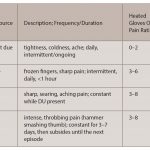
More than 125 rheumatology professionals and patients attending the ACR’s Advocates for Arthritis conference will convene on Capitol Hill Sept. 11 to speak with lawmakers about issues affecting the rheumatology community. Advocates will meet with more than 200 Congressional offices, providing firsthand accounts of how current health policy is jeopardizing patient access to appropriate treatments and rheumatologic care, and what lawmakers should do instead.
This is an especially critical time for the ACR to be on Capitol Hill, as Congress must take action on many pressing issues:
- Averting the 29.4% cut to Medicare physician payments scheduled for Jan. 1, 2013.
- Adding cognitive specialists to efforts to boost reimbursement for undervalued evaluation and management services.
- Ensuring patient access to treatments by passing legislation to restrain high patient cost sharing for specialty medications.
- Adequately funding the NIH and other research agencies so that critical research, including development of new treatments for arthritis and rheumatic diseases, can continue.
It is crucial that these messages reach all 535 congressional offices. Even though 125 people assembling on Capitol Hill to personally advocate for rheumatology issues will make a difference, it will take the voice of all rheumatology professionals and patients across the country to ensure Congress acts.
Legislators to Wear Arthritis Simulation Gloves
To support this year’s efforts, the ACR’s Simple Tasks campaign will place advertisements in Capitol Hill publications, reach out to key media, provide advocates information on how to educate lawmakers about the severity of rheumatic diseases, and provide information on the importance of rheumatologists and rheumatology health professionals. The campaign is delivering rheumatic disease–simulation gloves to a number of congressional offices, and will provide gloves for some advocates to use in their meetings. The gloves were designed by Georgia Tech to simulate the reduction in functional capabilities experienced by individuals with moderate to severe rheumatoid arthritis. They simulate common symptoms of RA, including stiffness and reduction in grip strength, dexterity, range of motion, and tactile sensation, and they will be used to show lawmakers how the simplest tasks can become impossible because of rheumatic diseases.
You can strengthen the impact of the ACR’s messages in Washington:
- Write, call, or e-mail your legislators. As their constituent, your lawmakers are elected to represent you. Contact them frequently to let them know how you feel about important issues. Go here to get started: www.rheumatology.org/advocacy.
- Schedule a meeting with your members of Congress at home or in Washington, D.C. Face-to-face meetings build relationships and show you are a committed advocate. ACR staff can help facilitate meetings. Visit www.rheumatology.org/advocacy.
- Get your patients involved; they are constituents, too. Encourage them to call or write their members of Congress.
- Ask your lawmakers to visit www.SimpleTasks.org to learn how they can support more than 7 million Americans living with inflammatory rheumatic diseases.
The rheumatology community must stay active and united to ensure Congress considers the rheumatology subspecialty when making health policy decisions. Reach out to your elected officials and make the voice of rheumatology heard. Visit www.rheumatology.org/advocacy to contact your members of Congress and for more information.

